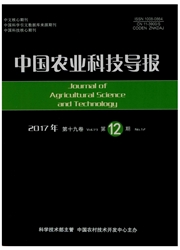

 中文摘要:
中文摘要:
旅游供应链协同创新能够获得单个创新主体无法企及的整体创新效果。然而,旅游供应商的机会主义行为却是旅游供应链协同创新的障碍。旅游运营商对供应商进行有效治理,是旅游供应链协同创新的关键。文章分析了旅游运营商对供应商实施正式治理和非正式治理,即签订合法契约引入外部强制性的法律约束,与构建关系规范实现群体内自主性约束这两种机制的治理效果。研究发现,合法契约、关系规范均能够显著减少旅游供应商机会主义行为,促进旅游供应链协同创新。但旅游运营商自身的可替代性会影响治理机制产生的治理效果。随着旅游运营商可替代性程度的提高,关系规范对机会主义行为的约束作用显著增强,彰显出关系规范对供应链成员的保健效果;而关系规范对旅游供应链协同创新的促进作用减弱,表明旅游运营商的可替代性会削弱关系规范的激励效果。文章能够在理论方面对旅游供应链治理与协同创新研究进行补充;同时在实践方面也有利于指导旅游运营商有针对性地运用治理机制对旅游供应链进行治理,保障旅游供应链协同创新的实现。
 英文摘要:
英文摘要:
The tourism market is facing fierce competition, and, as a result, innovation is being used as a tool to gain a competitive advantage. Within tour Operators, integrative innovation effects can be obtained through supply chain collaboration. However, the opportunistic behavior of supply chain members can often become an obstacle for tourism supply chain collaborative innovation, therefore the governance of the tourism supply chain is particularly important. Tour operators manage the supply chain members, which in turn effectively prevents any opportunistic behaviors from taking place. This is the prerequisite for tourism supply chain collaborative innovation. The existing studies analyzed different mechanisms to solve this governance problem, and the findings resulted in the notion that the governance effect of these mechanisms on the tourism supply chain is still uncertain. Governance effect is limited to opportunistic behavior, along with a lack of attention to the collaborative innovation of the supply chain.Based on the perspective of transaction cost economics and the relational exchange theory, this study attempted to build a governance model in the specific context of tourism. Within this model it is evident that the effect of formal and informal governance mechanism is in use. The introduction of an external legal contract which signed mandatory legal constraints, along with the relational norms to achieve the effect of autonomous governance, are considered at the same time. This study not only pays attention to the reduction of opportunistic behavior, but also focuses on the promotion of supply chain collaborative innovation in relation to governance effect. Within this model, the substitutability of the tour operator is also included in order to explore the impact this has on the choice of governance mechanisms.Data was collected from tourism suppliers that participated in three tourism fairs. They are Beijing International Tourism Expo, China Tourism Expo(Wuhan) and China(Guangdong) Internationa
 同期刊论文项目
同期刊论文项目
 同项目期刊论文
同项目期刊论文
 期刊信息
期刊信息
